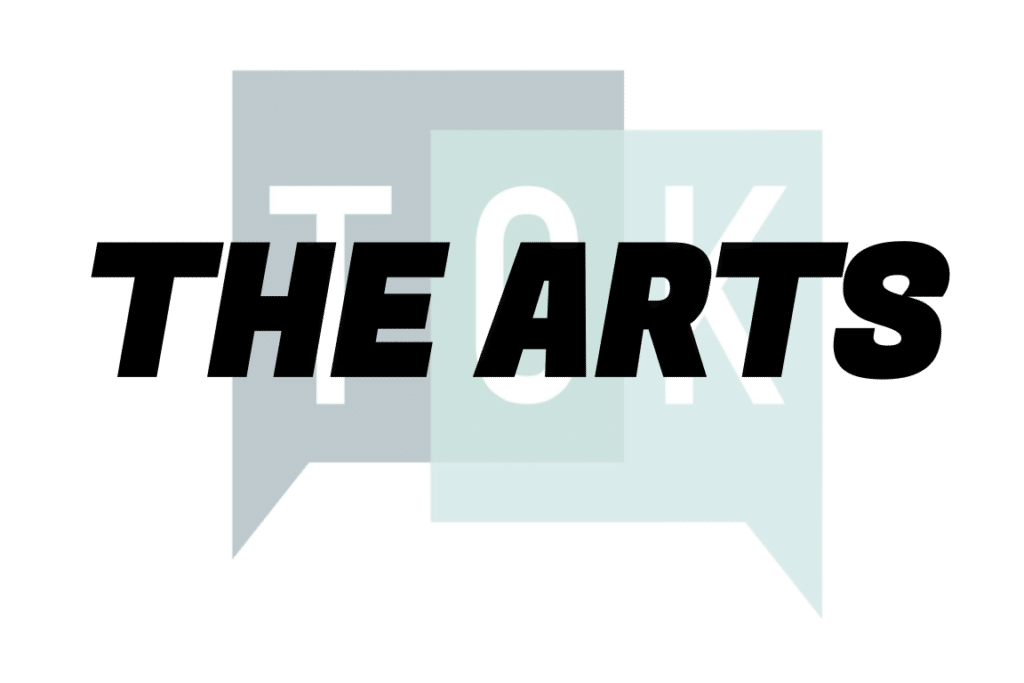
Welcome to the arts section of the site. This page will help you to take ownership of the arts, via a quick overview, and four padlets that offer you quotes, knowledge questions, real-world issues, and key thinkers relating to this area of knowledge.
You can use this content both to understand this component of TOK, and support discussions and arguments that you offer in your essay and exhibition.
The arts: a quick overview
The arts constitutes a diverse and multifaceted area of knowledge, encompassing various forms of creative expression such as visual arts, literature, music, dance, and theatre. At its essence, the arts serve as a medium for human communication and self-expression, transcending linguistic and cultural barriers. Within this realm, several key concepts come into play.
Interpretation plays a central role, as it underscores the subjectivity of art, highlighting that individual perspectives and emotions shape how we understand and appreciate artistic works. The arts are a realm where values are explored and portrayed, inviting us to reflect on cultural, moral, and societal dimensions inherent in artistic creations.
Two prominent thinkers from diverse backgrounds within the arts are Frida Kahlo and Chinua Achebe. Frida Kahlo, the Mexican artist, employed her iconic self-portraits to delve into the complexities of identity, pain, and gender, while offering a unique cultural perspective.
On the other hand, Chinua Achebe, the Nigerian novelist, challenged colonial narratives with his seminal work, “Things Fall Apart,” providing profound insights into the clash of cultures and the dynamics of power and responsibility.
In the contemporary world, the arts continue to be deeply intertwined with real-life issues. Cultural appropriation is a topic of concern, igniting debates about the respectful representation and use of elements from different cultures in art, reflecting broader conversations on cultural responsibility and authenticity. Simultaneously, the issue of censorship in art remains relevant, emphasizing the power dynamics and ethical considerations surrounding artistic freedom.
Engaging with these contemporary issues, the arts offer an exciting platform for students to explore and understand the complexities of our globalized world. They invite critical thinking, cultural appreciation, and the cultivation of empathy, making an exploration of the arts a very rewarding element of the course.
1 QUOTES Who said “Art is a lie that makes us realize truth”?
Explore these quotes on the arts by a wide range of different thinkers. Which quotes are the most and least insightful? How they challenge our assumptions about the arts? What do they reveal about links between the arts and other aspects of the TOK course?
2 KNOWLEDGE QUESTIONS What determines the way works of art are interpreted?
Identifying and exploring knowledge questions (KQs) is at the heart of TOK, prompting us to reflect on our knowledge, evaluate whether it’s be based on a flawed or incomplete assumptions, and provide us with a focus point to improve our understanding of the world.
3 REAL-WORLD ISSUES Why did Damien Hirst burn his artworks?
These examples will help you to understand how TOK ideas manifest in the real-world, take ownership of the arts, link TOK to the latest global issues, and become an authentic critical thinker. They will also help you to justify and explore the discussions you offer in your essay and exhibition.
4 KEY THINKERS Is Lin-Manuel Miranda right that the arts act like ‘bypass surgery’?
The thinkers in this padlet will help you to consolidate your understanding of the arts, and challenge your assumptions about the world. You can also draw on their ideas to support your essay and exhibition discussions, and add depth and authority to the claims you make about knowledge.
THE ARTS: DEEPER DIVES Follow these links to access a range of notes, essays, and observations on the arts. Use the deeper dives docs to research this area of knowledge, and hone your TOK essay arguments and discussions.

Subscribe to the free TOK newsletter!
Subscribe to our free newsletter, and collect fantastic examples to help you understand the key TOK ideas, support your essay and exhibition, and make you an authentic critical thinker.
You’ll encounter some of the most important thinkers from the past and the present, go beyond the headlines of contemporary events and issues around the globe, and see how TOK concepts manifest in the real-world. Subscribe HERE!